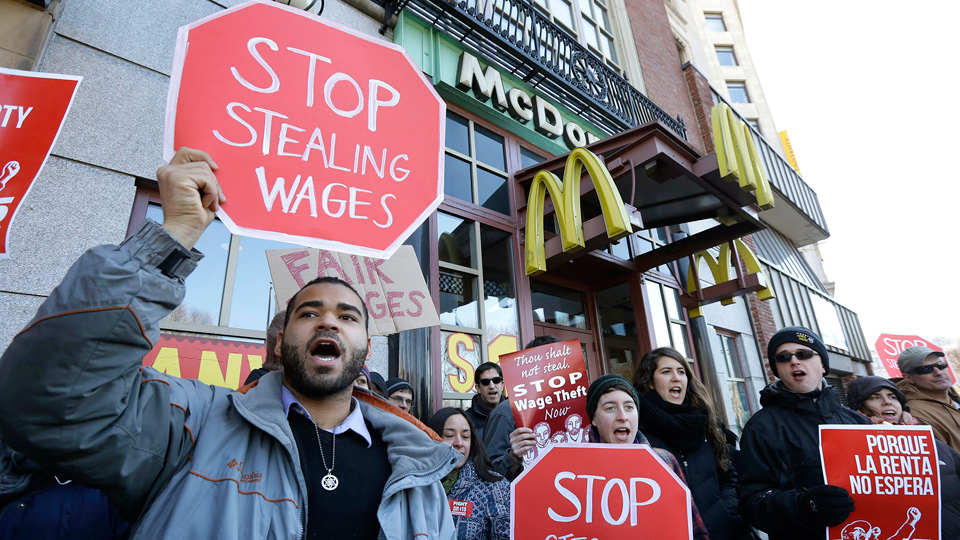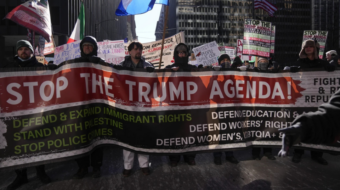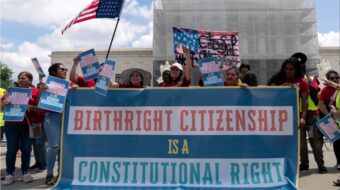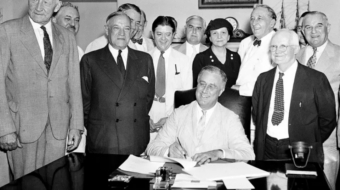
WASHINGTON—In what might be predictive of more anti-worker measures to come, a federal judge in Texas has bowed to the wishes of corporate lobbying groups and has blocked a measure that would have increased by 12.5 million the number of workers eligible to receive overtime pay.
The measure was scheduled to take effect today, December 1.
It is a rule promulgated by the U.S. Department of Labor (DOL) in May. It extends overtime eligibility to all workers making up to $47,476 a year. Currently the threshold is $23,660. Under the rule, the total number of workers eligible for overtime would be about 4.2 million. The rule also indexed the salary threshold to inflation; before this, the wage threshold could only be raised through the DOL rule-making process, that typically takes at least one year.
From the minute the NLRB announced the new rule, right wingers in Congress have been determined to kill it. They tried to pass several bills to repeal it and were planning some arcane parliamentary maneuvers.
President Obama held the line against the right wingers at every turn, saying that because Congress has been refusing to even consider raising the federal minimum wage, it should at least allow for the expansion of overtime pay eligibility.
Now it looks like the Republicans in Congress will get their way without having to do anything more. Although the injunction imposed by Judge Amos Mazzant is preliminary, the wording of his decision indicates he will soon move to make it permanent. At that point the Obama administration could appeal, but chances appear slim that an appellate court would reinstate the overtime rule.
In his decision, Mazzant wrote that “The State Plaintiffs have shown a likelihood of success on the merits because the Final Rule exceeds the Department’s authority.” In other words, he is claiming that the Labor Department overreached.
This reasoning is bogus. Experts at the Economic Policy Institute point out that “For 78 years the Department of Labor has used salary as well as duties to determine overtime eligibility. Congress has amended the Fair Labor Standards Act many times and has never objected to the salary test. [Judge Mazzant is wiping out an] authority [The NLRB] has exercised since 1938, under 10 presidents, including FDR and George W. Bush, to set a minimum salary requirement for overtime exemption.”
Even if Judge Mazzant’s opinion doesn’t stand up in appeals, the overtime extension rule will probably be killed anyway. Observers believe that Donald Trump will most likely block it using as an excuse his crusade against “excessive regulation.”
Judge Mazzant serves in the Eastern District of Texas in Sherman, Texas, an area in which courts have made killing worker-friendly regulations a cottage industry.
Anti-worker groups have taken their cases to this area of Texas because the federal judges are mostly right wingers like Mazzant and because appeals of their decisions go to the 5th Circuit Court, also known for being anti-worker. Until a ninth justice is named to the Supreme Court, appellate courts have final say in politically charged cases.
Judge Mazzant was appointed to the federal court by President Obama. He was previously appointed to the state bench by Republican Gov. Rick Perry.
The case against the overtime expansion was brought to his court by the U.S. Chamber of Commerce, the National Federation of Independent Business and 21 Republican-run states.
Christine Owens, executive director of the National Employment Law Project, said that although “the business trade associations and Republican-led states that filed the litigation in Texas opposing the rules have won today,” they “will not ultimately prevail in their attempt to take away a long-overdue pay raise for America’s workers.”
Labor leaders across the country have expressed the hope that Owens is correct.










